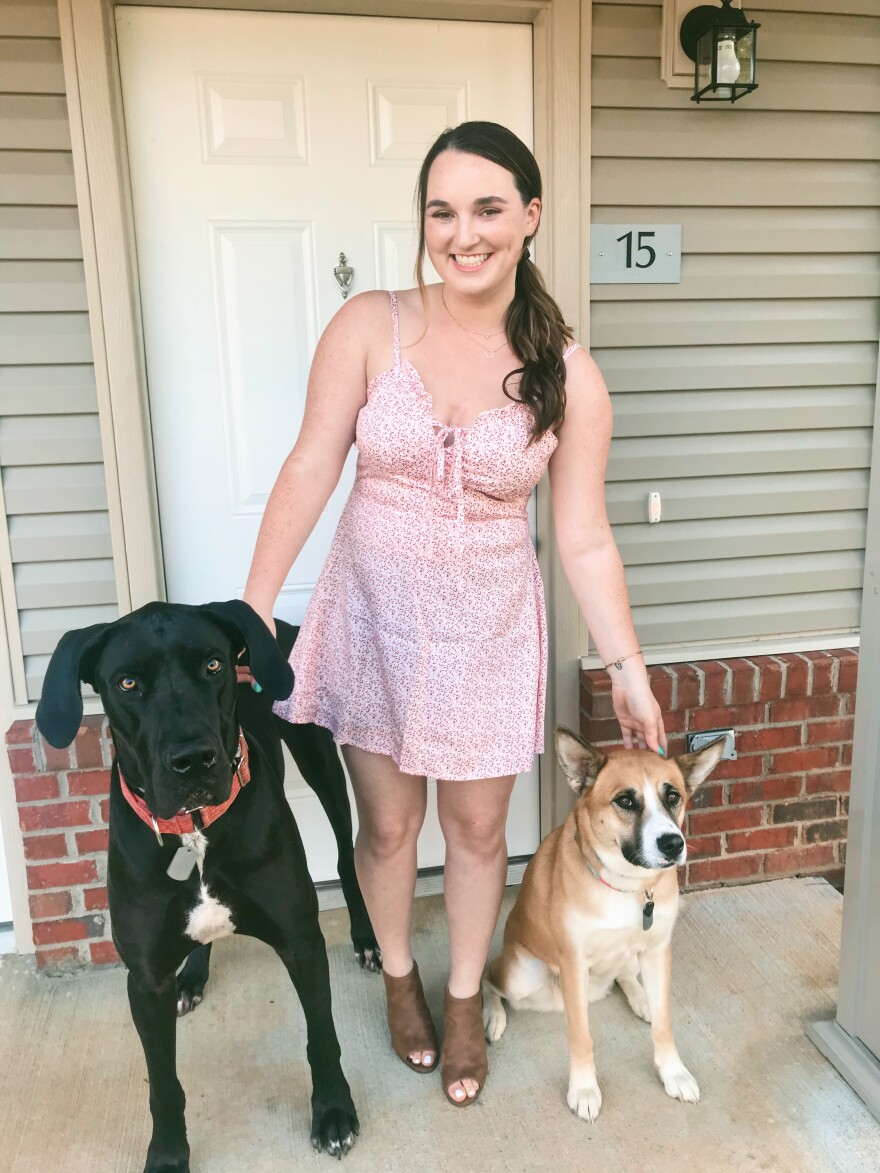As Kentucky busiesses and schools reopen, with strict health guidelines to prevent the spread of COVID-19, a recent graduate of Western Kentucky University said she knows from personal experience that young people are not immune to the coronavirus.
MacKenzie Kristufek turned around on her way to her temporary job at the end of March because she didn’t feel well. The symptoms of COVID-19 worsened as the day went on with a sore throat, back pain, fever, a headache and difficulty breathing.
She tested positive for COVID-19 and went into a two-week quarantine. Her boyfriend’s parents helped her get through it.
“We were both staying with his family because my family is in Georgia and his parents just kind of insisted on making sure I was being taken care of," said Kristefuk. "So everyone was in strict quarantine within that house. I stayed in one room and someone would bring me food and leave it outside the door.”
Kristufek said after the two weeks of isolation, she was released from quarantine by the health department. But a few days later, her boyfriend tested positive for the virus. So the family went into quarantine for a second time. After that, everyone in the family got tested, those tests came back negative, and all are well now.
WKU Public Radio reporter Rhonda Miller talked with 22-year-old Kristufek about her experience before, during and after the illness.
Kristufek:
I was in school I was finishing my last semester of senior year at Western Kentucky. And the first day I felt sick, I went and got tested and that was March 31.
Miller:
What were your symptoms? What did you feel like?
Kristufek:
When I woke up, I just had a really sore throat and kind of felt like maybe I had strep or something. And then the longer that I was awake, it just kept getting worse, and it was like all the symptoms that they listed. My lower back was hurting. It felt like someone was sitting on my chest. I had a fever. I mean, I had a headache, my throat hurt. All the boxes were checked.
Miller:
Did you have any underlying conditions? I mean, did you have any health issues before that?
Kristufek:
No, totally healthy. So, it kind of just came out of nowhere.
Miller:
How soon did you get your results from the COVID-19 test?
Kristufek:
I got those two days later, and someone from the Kentucky Health Department called me. So I got those positive results back and then I spoke to someone in the health department. And we had a walk through, like where I had been and what I'd been doing the past two weeks. So every single day, because I tested positive, every day I had to text someone from the health department twice a day, in the morning and at night, reporting my temperature and my symptoms. So, I was technically released April 12, but I really didn't feel like I was back to normal until the beginning of June.
Miller:
And how have you been doing since then?
Kristufek:
So two weeks ago, out of nowhere, on a Wednesday and Thursday, those entire two days, I had 103.2 fever. So, I was thinking, OK, maybe I have it again. But I tested negative and I feel totally fine, since that Friday, when my fever went away, I felt totally normal, healthy. But the doctor wasn't surprised to test me for COVID-19 again, because they said that I could totally get it again. And they've had people come in and get tested for the second time and test positive.
Miller:
So Mackenzie, what would you tell people now about the virus and anything you think is important to let people know after your experience?
Kristufek:
It's definitely important to wear masks because healthy young people can also get it. It's not just the elderly. I mean, I'm 22 and I know other people that have had it that are in my same age group. So, it's just really important to wear masks and to pay attention to the guidelines that, you know, the CDC or the governor sets out and just be smart.
Miller:
Well, Mackenzie, thank you so very much. I'm glad you're feeling better now. Right, feeling back to normal? And are you out and about an active now or what? What have you been doing since you've recovered from all this?
Kristufek:
I have two dogs. So, we go on walks around the neighborhood and up on Western’s campus. So that's a really easy way to get out and get exercise without being around a lot of people.
Miller:
Well, McKenzie, good luck and good health to you.
Kristufek:
Thank you.








